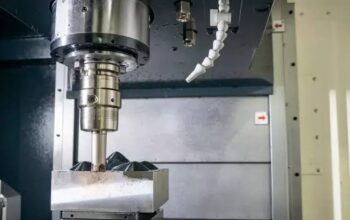Safety Considerations When Dealing With Construction Equipment Dealers
Any construction project’s success is heavily dependent on its equipment. Whether you’re a contractor, project manager, or a construction business owner, procuring the right equipment is crucial. However, beyond selecting the right machinery, safety considerations when dealing with construction equipment dealers should be a top priority. In this article, we will explore the various safety aspects that should be kept in mind when interacting with construction equipment dealers.
Equipment Inspection
One of the first safety considerations when dealing with construction equipment dealers is the thorough inspection of the equipment. Before purchasing or renting any machinery, it’s essential to assess its condition. Dealers should provide you with detailed information about the maintenance history, age, and any previous accidents or repairs. This information helps you make an informed decision about the safety and reliability of the equipment.
Inspecting equipment includes checking for visible wear and tear, ensuring that all safety features are functional, and confirming that the machine complies with safety standards and regulations. A well-maintained and regularly inspected machine is less likely to pose safety risks on your job site.
Dealer Reputation And Certification
Choosing a reputable construction equipment dealer is another critical safety consideration. Reputable dealers are more likely to adhere to industry standards and provide safe and reliable equipment. Look for dealers who are certified and have a track record of delivering quality machinery and exceptional customer service.
Certified dealers often have technicians who are trained to perform safety inspections and maintenance on their equipment. This ensures that the equipment you receive is in optimal working condition, reducing the risk of accidents and breakdowns that could jeopardize your project’s safety.
Training And Operator Qualifications
Safety isn’t just about the equipment itself; it also involves the people operating it. Before taking possession of construction equipment, ensure that your operators are adequately trained and qualified to handle the specific machinery they will be using. Most reputable dealers offer training programs and resources to help operators understand the equipment’s functionality and safety protocols.
Operators should have a clear understanding of safety procedures, including how to start and shut down the equipment safely, what to do in case of an emergency, and how to conduct routine inspections. Operators who have received proper training are less prone to make errors that might result in workplace mishaps.
Maintenance And Support
Construction equipment requires regular maintenance to remain safe and efficient. When dealing with equipment dealers, inquire about the maintenance and support services they provide. A dealer that offers maintenance packages and quick response times for repairs can significantly enhance job site safety.
Regular maintenance not only prevents unexpected breakdowns but also ensures that safety features like brakes, lights, and warning signals are in working order. Timely maintenance can also extend the lifespan of the equipment, reducing the likelihood of accidents due to equipment failure.
Compliance With Regulations
Different regions have specific safety regulations and standards that construction equipment must meet. When dealing with equipment dealers, make sure that the machinery they offer complies with these regulations. Check for labels, safety markings, and certification to confirm that the equipment fulfills all necessary safety regulations.
Failure to comply with safety rules may lead to costly fines, project delays, and, most importantly, safety concerns for your staff. It’s crucial to partner with dealers who prioritize regulatory compliance.
Proper Transportation And Delivery
Another safety consideration is the transportation and delivery of construction equipment to your job site. Dealers should implement suitable transportation processes to guarantee that the equipment is delivered safely and securely. This includes securing the machinery to prevent shifting or falling during transit.
Additionally, make sure that the delivery personnel are trained in safe unloading and setup procedures. Mishandling equipment during delivery can lead to accidents and injuries, so it’s essential to work with professionals who prioritize safety at every step of the process.
Conclusion
Safety is critical in the construction business, and it should be the first focus when working with construction equipment sellers. By thoroughly inspecting equipment, choosing reputable dealers, ensuring operator qualifications, prioritizing maintenance, complying with regulations, and overseeing safe transportation and delivery, you can minimize safety risks on your job site. Remember that a safe construction site is not only beneficial for your workers but also for the success and reputation of your construction projects. Always prioritize safety when dealing with construction equipment dealers to achieve safer and more efficient construction operations.




